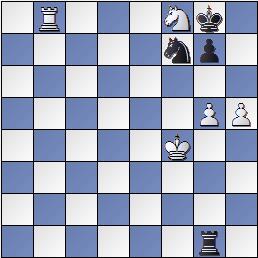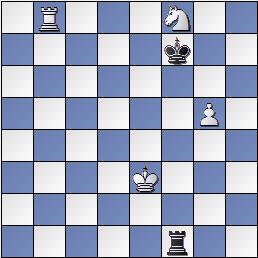The classical stage of round 5 of the 2013 World Cup has finished, and two of the four matches have been decided. Vladimir Kramnik defeated Anton Korobov on day 1 of the round and needed only a draw on day 2 to advance, and that's just what he got - with great difficulty. The games Peter Svidler - Dmitry Andreikin and Fabiano Caruana - Maxime Vachier-Lagrave were both drawn and the four players will proceed to tiebreaks tomorrow. Finally, Evgeny Tomashevsky caught out Gata Kamsky in mutual time trouble and won with the black pieces to advance to the semi-final round.
Kramnik has been pleading a bit of tiredness lately, and it has shown up in the form of little lapses of concentration and intensity. He came out of the opening in good shape; such good shape, in fact, that with a couple of accurate moves in the early middlegame his position was so healthy that Korobov said he was going to offer a draw. Either 18...Bd3 19.Nc1 c4 or 18...g5 19.Bg3 Qc6 would have been fine; instead, "at the last moment" he was attracted by the immediate 18...Qc6, thinking he could play ...g5 later. The problem was that by not first driving the bishop back g3 remained available to White's knight, and after 19.Ng3 Bh7 20.h4 Korobov was back in the game. A few more inaccuracies by Kramnik left him fighting to stay alive in a very bad ending with opposite-colored bishops.
Now it was Kramnik who was thinking of giving up the struggle - in this case resigning - but it was Korobov's turn to start slipping. One error came on move 41, immediately after the time control, when Korobov played 41.Kf3. The problem with this move is that it allowed Black's king to start heading over to the queenside, where it could help defend against White's soon-to-be-passed a-pawn. The point shows up after 41.Kf3 Kf8 42.Bb4+ Ke8 43.Ra8+ Kd7 44.Rf8 Bg6. Here 45.f5 can be met by 45...Bh5 check; had the king not gone to f3 but remained for the moment on a dark square that resource would be unavailable and Black would lose serious material. On move 49 Korobov probably should have played 49.Bb4 followed by 50.Kc3; that would at any rate have been a more effective way of implementing the idea he wanted in the game. Finally, 52.Rf6 gave up any remaining hopes. In reply the immediate 52...Rf5 wouldn't have worked because of 53.Rd6+ and 54.Rd4, but after the zwischenzug 52...Rb5! it's an easy draw. Giving up the a-pawn renders a dead draw, and 53.Rb6 Rxb6 is an easy draw as well. Korobov played 53.Bc3, but now that the bishop no longer covered the d6 square Kramnik's 53...Rf5 made the draw an easy one. White can either give up the f-pawn as he did in the game (note that 53.Bd2 would have protected the pawn but allowed 53...Rb1#) or trade into a dead opposite-colored bishops ending. (Black's king stays in the a8 corner and he drops his bishop back to h7 after White plays f4-f5, eventually sacrificing it to eliminate all the kingside material. The result is a standard wrong bishop and rook's pawn combo.) After Kramnik's 58th move Korobov shrugged and offered a draw, which was of course accepted, and Kramnik went through to the semis, where he'll await the winner of the Caruana - Vachier-Lagrave match.
About the game between Caruana and Vachier-Lagrave, its character, though not its result, was determined on move 17. Had Vachier-Lagrave played 17...Bf8 the position would have been fully equal and perhaps the game would have ended in a short draw. Instead, Black played 17...Bd6, but after 18.Nb6 Black was forced to surrender the bishop pair and needed to suffer for almost another 40 moves before the draw was secured. Good defense by the young Frenchman.
The other draw was a short one - 20 moves - between Svidler and Andreikin, but despite its brevity there was quite a lot of content. Andreikin played 3...c5 in an Advance Caro-Kann, and White seemed to come out of the opening with an edge. The position was very complex, with Svidler up first one pawn and then two, but with Black taking aim at more than half of White's pawns in one way or another. Ultimately Svidler failed to maintain his pawns and his edge, and so they're off to tiebreaks as well, where the winner will play tournament Cinderella Evgeny Tomashevsky.
The young Russian (and economics Ph.D.!) has had an amazing run. He won the last two games of his first round match against Alejandro Ramirez, including an Armageddon game, to squeak out with a narrow victory. He won "normally" against Wesley So before playing and beating the top seeded Levon Aronian. He then won a harrowing match against Alexander Morozevich and this time it was Gata Kamsky who was shown the door. Kamsky played the Anti-Marshall line with 8.h3, but here too Black can sac a pawn with 8...Bb7 9.d3 d5. In fact, like Andreikin, he even went two pawns down for a while, but both his general prep for similar positions and the engine indicate that his compensation was sufficient. Indeed, he probably could have forced a draw starting with the tactical 18...Nxc2 19.Qxc2 Qxf3 20.Nd2 Bh2+. For example: 21.Kf1 Qxh3+ 22.Ke2 Qe6+ 23.Ne4 f5 24.Qb3 Qxb3 25.Rxb3 fxe4 26.fxe4 Re8. That would have been a nice finish, but then he would have missed out on the chances he got in the game.
Even after he regained one of the pawns the evaluation was the same - equal - and it remained that way after Black's 34th move. White was up a pawn and had a nice looking d-pawn, while Black had the better structure, a safer king and a passed h-pawn. That pawn didn't look so dangerous, but it was. White should have played 35.Qd4 or 35.Re4, in both cases aimed against the possibility of ...h4. After 35.b4? h4 36.Qd4? h3 White was completely lost, and resigned after both players made the time control on move 40. Although Tomashevsky's last move was good enough, sliding the rook over one more file would have been even better: 40...Rh6 forces an immediate mate, spite checks aside.
Two tiebreaks in the morning, and then it's on to the semi-finals, which are a finals of a sort. The two finalists, properly speaking, are automatically seeded into the Candidates, so the most important thing (except for Kramnik, who has already qualified by rating) is getting to the final, which in turn means that the main prize is winning in the semis.
A curiosity: if Vachier-Lagrave wins his quarter-final tiebreak against Caruana, then no matter what a player born in 1990 will be in the next Candidates' tournament. V-L would play Kramnik, with the following implications. If Kramnik wins, then he qualifies for the Candidates not by rating but by being a World Cup finalist. That would mean that the next highest-rated player (based on average ratings over a certain time period) after Kramnik would take his rating spot, and that player is Sergey Karjakin. On the other hand, if Vachier-Lagrave beats Kramnik, then he would qualify for the Candidates from the World Cup, while Kramnik would qualify by rating. (Karjakin would be left out unless he was awarded the wildcard spot.) Both Vachier-Lagrave and Karjakin were born in 1990, so Q.E.D. (That was quite the year: Andreikin was also born then, as was Ian Nepomniachtchi. And...above all, Magnus Carlsen.)
 Monday, September 2, 2013 at 12:30PM
Monday, September 2, 2013 at 12:30PM 
